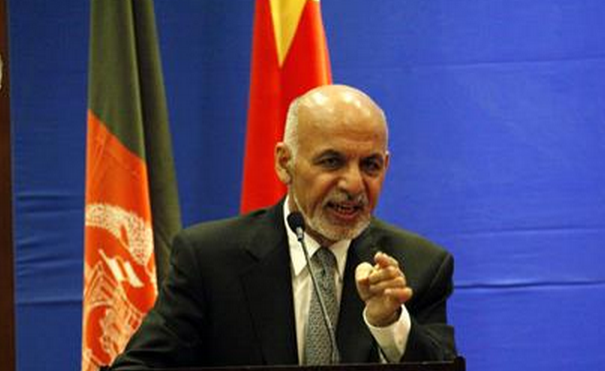Three wise old men from South Asia with connections to Singapore have produced a book in which they offer a well-meaning, idealistic cure for the ills of Afghanistan that inadvertently may lead to a genuine solution in that troubled land.
In a book entitled Afghanistan: The Next Phase, they suggest a formal association of 10 to 12 countries, most of them in the afghan region, to help, to use their word, “to chaperone” the country into the future.
At a book launch on Wednesday at the Woodrow Wilson Center for scholars, a Washington DC think tank, the regional neighbors of Afghanistan they mentioned included India, Pakistan, Iran, Saudi Arabia, Russia and China. Of course, hovering over the Congregation, was the united states and its big bucks.
The initial reaction to such a lineup was: how in the world would anyone get these states to cooperate? Were these wise men not so wise after all?
But think about it. One of those countries has good relations with Pakistan, Iran, Russia and the Kabul government as well as an agreeable approach to the Taliban: China. Through the Shanghai Cooperation Organization, it has good relations with Afghanistan’s northern neighbors. It even has improving relations with Saudi Arabia and a substantial relationship, good and bad, with the United States and India. The United States, alas, cannot provide similar credentials.
The Chinese, ordinarily a passive observer to most international episodes, have taken an uncharacteristic interest in Afghanistan, with which it shares a tiny, remote portion of a border called the Wakhan Corridor. Ashraf Ghani recognized the possibilities by making Beijing his first overseas destination after assuming the Afghan presidency.
With China’s relatively clean record in the Middle East (forget its clumsy handling in China of Islam and Muslims), would it not be in a position to bring together the warring parties, the Taliban and the Kabul government, and encourage the presence of other states to support a peace agreement? Unlikely, with China, combating Uighar uprising in Xinjiang province, acting as chaperone.
Of course, such a solution might mean an inclusive government for Afghanistan, meaning the Taliban would play a substantial role. The United States might be sidelined somewhat, although those big bucks would be needed. But, perhaps, those 10,000 – 12,000 U.S. troops might no longer be needed. In fact, it might be lovely to have 10,000 – 12,000 Chinese troops mired there instead, although the best solution would be no troops at all. Would the American public buy it? Probably. Would the Taliban bring in other radical Islamist factions?
The Chinese would not act as an intermediary out of the goodness of their national heart. In return for their good work, the resource-hungry Chinese would have as reward the development rights to Afghanistan’s supposed mineral riches, a small price to pay. China’s state mining corporation has been stuck since 2007 with a $3 billion contract to mine copper from the Mes Aynak mine south of Kabul, a deal paralyzed by warfare.
Western estimates of Afghanistan’s substantial reserves of minerals and hydrocarbons – such as copper, iron ore, gold, oil and gas — run up to US$3 trillion (that’s with a ‘T’), fetching for a Kabul regime that cannot even pay for its government’s daily expenses without foreign aid.
So there you have it: a way out if Afghanistan for the United States, peace in the region. Just another Afghan pipe dream? Perhaps.
As for the three wise old men, they are Shahid Javed Burki, 76, a former Pakistan Finance Minister and World Bank Vice President; Iftekhar Ahmed Chowdhury, a former Bangladesh Ambassador the UN and Foreign Affairs Adviser in 2007 to the military-backed government that tried unsuccessfully to rid the country of Khaleda Zia and Sheikh Hasina; and Riaz Hassan, a Pakistani sociologist and director of the University of South Australia’s International Centre for Muslim and non-Muslim understanding.

